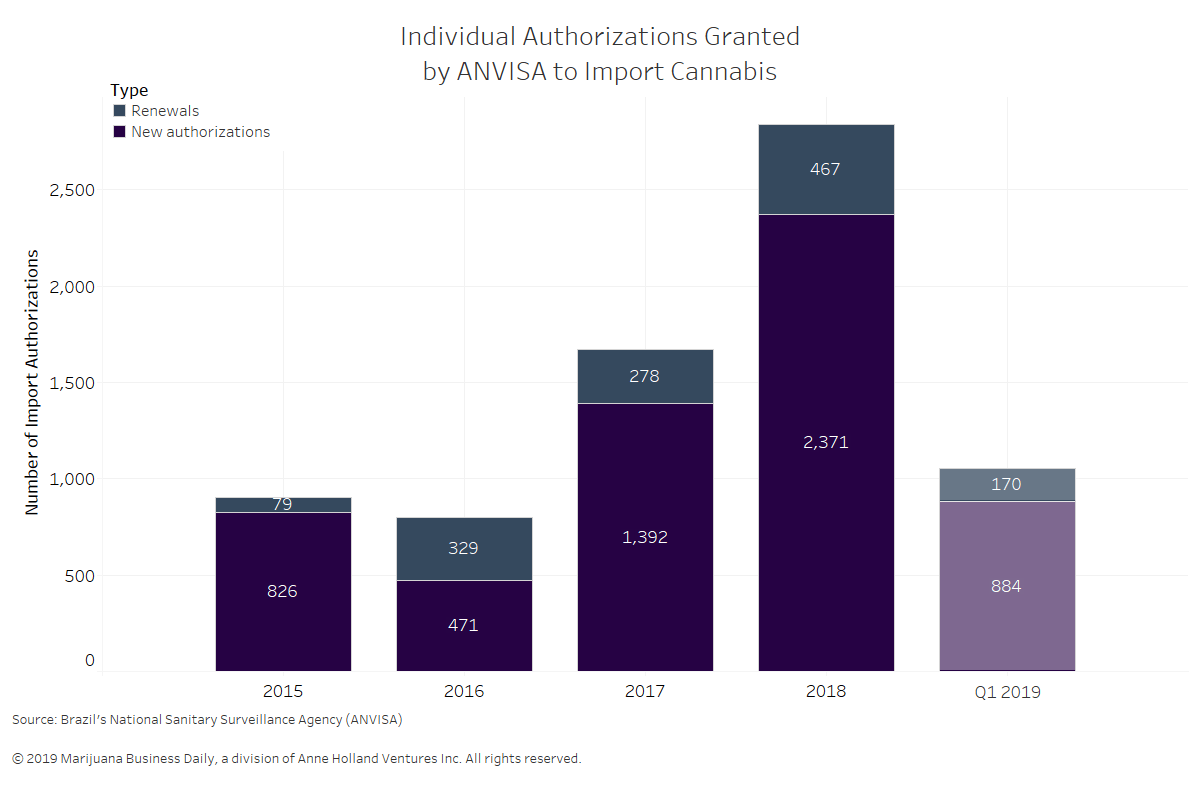California’s marijuana growers are at risk of losing thousands of dollars in revenue as scores of temporary business licenses expire each day before the state can replace them with annual permits.
That leaves many cultivators trapped in a licensing logjam with a difficult choice: Continue operating with expired permits – or shut down.
This is the beginning of the outdoor cultivation season, and many growers went ahead and planted despite knowing their temporary licenses were set to expire – holding out hope that state regulators would speed up the licensing process and issue annual permits posthaste.
That largely hasn’t happened. And lawmakers in Sacramento have yet to pass a legislative fix.
“I do believe the state will get our license approved in time,” said Wendy Kornberg, CEO of Sunnabis, a cultivator in southern Humboldt County with temporary licenses expiring April 17.
“I have to believe that, otherwise we lose everything. I would lose my home. I would lose my land. I would lose my farm. We would have nothing left.”
Senate Bill 67, which would amend a section of the California Business and Professions Code to extend temporary business licenses until the end of 2019, passed in the state Senate earlier this month and moved to the Assembly. But it hasn’t yet been assigned to a policy committee.
The state Legislature is on recess until April 22, and industry analysts don’t expect a committee vote before April 29.
Then the measure will need fiscal committee and floor votes before landing on the governor’s desk.
Industry watchers expect more than 6,000 temporary cultivation licenses will expire by the end of April.
‘No choice but to grow’
Mikal Jakubal owns Plant Humboldt, a cannabis nursery in Humboldt County. His temporary licenses expired March 31, but he’s still operating.
“Those of us who already started seeds have no choice but to grow them out,” he said.
“If we were to shut down, we’d go bankrupt – and we wouldn’t start up again.”
Some business owners who continue to operate with expired licenses don’t want to openly speak out, but not Jakubal.
“Frankly, I think more people need to be outspoken,” he noted.
Jakubal said he believes there’s a lack of understanding in Sacramento about how his business and others like it operate, namely based on seasonal factors.
“The seasons don’t wait,” he added. “The calendar doesn’t stop because the regulators are twiddling their thumbs.”
Jakubal’s operation isn’t financed with millions in outside investments that would keep him capitalized through months of lost income.
He completed his application for an annual permit at the end of 2018 but hasn’t heard anything from state regulators.
Now he’s hoping he’ll get his annual licenses by the time his plants are ready for sale in three to four weeks.
He’s anxious, though, that if the cultivators who would typically buy plants from him can’t get their permits, he’ll “be stuck with a bunch of plants.”
Growers attempt to keep licenses current
Kornberg in Humboldt has tried to prevent her licenses from expiring by filling out applications and paying the fees, as well as communicating as much as possible with the CDFA.
“We’ve already spent money on clones,” she said. “We have to plant our plants. I really don’t know what to do.”
Her farm is a small, family-run operation. Employees are still trying to process cannabis from 2018, a task they’ll have to cease once the company’s permits expire.
“There’s a possibility of losing our crop from last year,” Kornberg said.
She said her business could weather being without a license for a few months, but if the licensing problem were to go on for, say, half a year, “that’s a problem.”
“If I had money buried in the ground somewhere,” Kornberg said, “we could wait until June or July, but that is not our situation.”
‘Just idling’
At Oakland-based CWG Botanicals, cultivator Rebecca Kirk’s temporary license expired March 21. She applied for her annual license in May 2018.
State regulators told her on March 29 that she had deficiencies in her annual license application, including a missing copy of her lease.
According to Kirk, she provided the required copy of her lease in order to receive her initial temporary permit, but the state lost it.
She’s had to cease and desist operations for the time being.
“We’re just idling,” she said. “Losing thousands (of dollars in revenue) per week.”
What advice do marijuana attorneys have?
Los Angeles-based cannabis attorney Pamela Epstein has multiple clients who applied for annual permits last year and have seen their temporary licenses lapse. She pointed to a lack of urgency by CDFA regulators.
“The entire program is prefaced off of having cannabis,” she said. “If you have no cannabis that is cultivated lawfully, then you are responsible for the uptick in the illicit market and the eventual rise in prices.”
Although regulators have told her several times that as long as her clients are maintaining compliance they won’t be targeted by law enforcement, she’s not buying into it.
“If you don’t have an active state license, you’re not allowed to conduct commercial cannabis activity,” Epstein said. “That means planting, harvesting, caring for those plants. It means everything.”
Oakland-based cannabis attorney Kieran Ringgenberg said California’s licensing issue could affect companies’ abilities to create long-term business plans.
“If there’s only a short pause, and as long as there’s no enforcement activity, this will only have a moderate impact,” he added.
“If there starts to be enforcement or this stretches on so long that people can’t move product or pay their bills, then obviously people are going to be out of business.”
Bart Schaneman can be reached at barts@mjbizdaily.com




